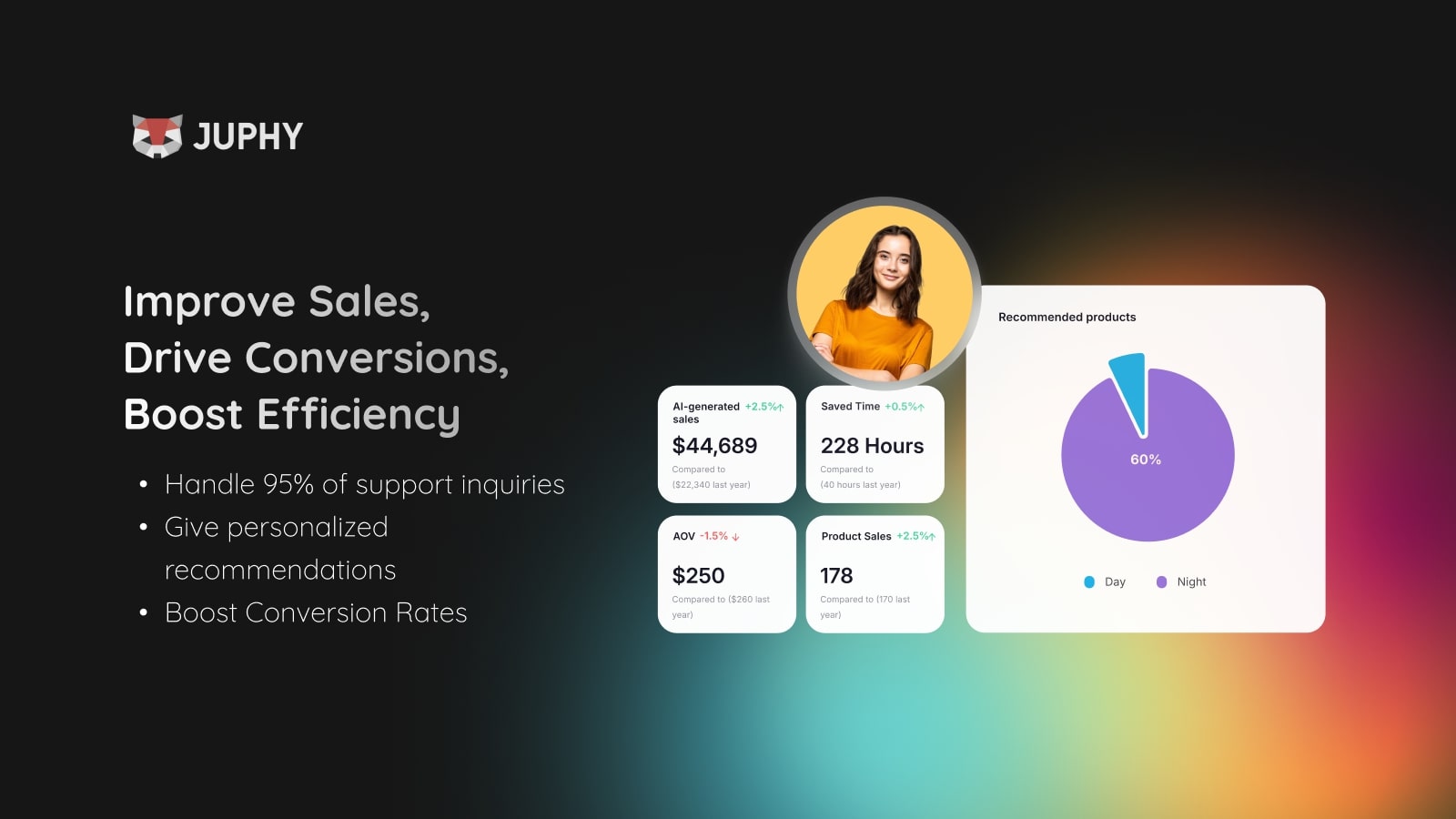Juphy’s Weekly E-Commerce News Express – 14-18 April 2025
Ceyda Duz
This week’s e-commerce news highlights a surprising surge in consumer spending alongside a revealing look at the current landscape of AI adoption among online sellers. We’ll delve into the factors driving robust retail sales and explore the gap between perceived and actual AI integration in Southeast Asia. Plus, keep an eye on how global payment options are evolving with Shop Pay Installments’ international push, iDenfy’s new Shopify security layer, and eBay’s AI-fueled selling simplification – these shifts are actively shaping the future of how we buy and sell online. Let’s dive right in!

Unexpected Strength in Consumer Spending Despite Economic Clouds
Recent data from the U.S. Census Bureau reveals a surprising increase in retail and food service sales. In March, these sales advanced at a strong 4.6% on a seasonally adjusted basis, pushing the total year-over-year growth to 4.1%. This indicates a noteworthy resilience in American consumer spending, even amidst discussions of potential trade tariffs.
Key Observations
- Widespread Retail Growth: The majority of retail sectors experienced positive sales growth in March. Notably, even department stores, which have faced headwinds, saw a smaller year-over-year contraction.
- Automotive Sector Leads the Charge: Automobile dealers experienced the most significant increase in March, with sales jumping by around 9%. This could be attributed to consumers acting ahead of potential tariff implementations.

- Home Goods and Apparel See Pre-Tariff Gains: Retailers in furniture and home furnishings, as well as clothing and fashion accessories, also benefited from what appears to be pre-emptive buying, recording substantial increases of roughly 8% and 5% respectively.
- Continued Appetite for Dining Out: Spending at food service and drinking places also showed strong growth, increasing by about 5% in March. This suggests that consumers are still prioritizing leisure and social experiences.
A Disconnect with Consumer Confidence

Interestingly, this strong retail performance contrasts with a reported decline in consumer confidence. Despite this dip in sentiment, actual spending remains vigorous, potentially driven by factors such as steady income, reduced energy expenses, and larger tax refunds.
The Tariff Factor
The data suggests that the anticipation of tariffs may have influenced consumer behavior in certain sectors, prompting purchases ahead of potential price increases. However, the long-term impact of these trade policies on consumer spending remains to be seen.
Looking Ahead
The sustained strength of consumer spending presents a complex picture of the e-commerce landscape. While the immediate figures are encouraging, the potential influence of tariffs and the underlying dip in consumer confidence warrant close attention. Businesses will need to remain agile, monitoring both consumer behavior and economic developments to navigate the evolving market conditions effectively. Understanding whether this spending momentum will continue in the face of potential price increases and economic uncertainty will be crucial for future strategies.
The AI Reality Check: Southeast Asian E-Commerce Grapples with Implementation Gap
While the promise of artificial intelligence resonates strongly with online sellers in Southeast Asia, a recent report from Lazada Group, in collaboration with Kantar, reveals a significant disconnect between belief and actual integration. The study, surveying over 1,200 e-commerce operators across six key Southeast Asian markets, highlights a widespread awareness of AI’s potential benefits, yet actual adoption lags considerably behind perceived levels.
Awareness High, Implementation Low
A notable finding is that while 68% of sellers report familiarity with AI technologies, the average implementation across their business operations stands at just 37%. Even more telling is the sellers’ own assessment, with many believing they’ve incorporated AI into 47% of their processes. This 10-point gap underscores a potential overestimation of current AI utilization and highlights the challenges in moving from understanding AI’s value to fully embedding it within business workflows.

Obstacles on the Path to AI Integration
Despite a near-unanimous consensus on the long-term advantages of AI – with over 90% believing it will reduce costs and boost productivity – significant hurdles persist. The primary roadblocks cited by sellers are the perceived prohibitive costs and the inherent complexity of implementation. Nearly two-thirds of respondents feel that adopting AI is either too expensive or too time-consuming, while a substantial 61% remain uncertain about its overall practical usefulness for their businesses.
Regional Disparities in AI Readiness

The report also uncovers notable differences in AI adoption across the region. Indonesia and Vietnam appear to be leading the way with average adoption rates of 42%, closely followed by Singapore and Thailand at 39%. In contrast, Malaysia and the Philippines show lower adoption rates, with sellers in these markets pointing to a lack of internal expertise and insufficient infrastructure as major contributing factors. This regional variation underscores the need for tailored approaches to facilitate AI integration across Southeast Asia’s diverse e-commerce landscape.
Looking Ahead
The findings of this report signal a critical juncture for AI adoption in Southeast Asian e-commerce. While awareness and optimism are prevalent, overcoming the barriers of cost, complexity, and a lack of internal expertise will be crucial for unlocking AI’s transformative potential. Initiatives like Lazada’s efforts to develop accessible AI solutions and provide practical support will likely play a vital role in bridging the identified gap. The varying levels of readiness across different markets also suggest that targeted strategies and investments in infrastructure and skills development will be necessary to ensure a more widespread and equitable adoption of AI technologies throughout the region’s online selling community. The future of e-commerce in Southeast Asia will undoubtedly be shaped by how effectively sellers can move beyond recognizing AI’s promise to fully integrate it into their daily operations.
Shop Pay Installments Goes Global, Powered by Affirm
Buy-now, pay-later (BNPL) is set for further global reach as Affirm and Shopify accelerate the international expansion of Shop Pay Installments. This summer will see the availability of the popular payment option for Shopify merchants in Canada and the U.K., with the added benefit of enabling cross-border commerce between these markets and the U.S. to follow. Looking ahead, the companies have announced plans to expand into Australia and key Western European markets, starting with France, Germany, and the Netherlands. This strategic move underscores the increasing global demand for flexible payment solutions, offering merchants a valuable tool to broaden their customer reach and enhance conversion rates by catering to evolving consumer preferences for greater financial flexibility at checkout.

iDenfy’s KYC Plugin for Shopify Merchants

Identity verification provider iDenfy has launched a new “Know Your Customer” (KYC) plugin specifically designed for Shopify merchants. This no-code solution offers businesses an accessible way to integrate identity verification directly into their Shopify stores, eliminating the need for custom development. According to iDenfy, the app provides an automated system that helps merchants ensure regulatory compliance and significantly reduce the risk of fraudulent activities. By offering a pre-built integration, iDenfy aims to save merchants valuable time and resources typically associated with building and managing their own ID verification tools. This development empowers Shopify businesses to implement robust KYC processes with greater ease and efficiency.
eBay Simplifies Mobile Selling with AI-Powered Magical Listing
eBay has launched a streamlined mobile selling tool enhanced by its new Magical Listing AI technology. This update focuses on making the listing process faster, easier, and of higher quality for sellers. The redesigned experience begins with photo uploads and a title, then leverages AI automation to intelligently suggest product details and optimal categories by analyzing images and text. This allows sellers to quickly review and approve the AI-generated content, significantly accelerating the listing creation process directly from their mobile devices. eBay aims to empower sellers with this intuitive, AI-driven tool to list items more efficiently and effectively.

Smarter Decisions Start with Smarter Data: Juphy AI for Shopify
As the latest data shows surprising strength in consumer spending—and reports from Southeast Asia highlight the challenges of turning AI potential into practice—Shopify brands need more than just automation; they need visibility. Juphy AI delivers exactly that with three comprehensive report pages—Engagement, Support, and Sales—offering over 25 key metrics that help merchants understand how their AI agent is performing in real-time.
From tracking product recommendations and conversion rates to measuring time savings and customer engagement, Juphy empowers merchants to optimize their AI strategy based on clear, actionable insights. Whether you’re navigating sudden demand shifts or refining your support automation, Juphy’s analytics suite helps you stay agile and data-driven.
Explore Juphy AI with a free trial and see how performance reporting can drive real impact for your Shopify store!

Key Takeaways
U.S. Consumer Spending Shows Strength: March retail and food service sales in the U.S. grew by 4.6%, defying expectations despite looming tariff threats and weakening consumer sentiment. Categories like auto, home goods, and dining out all saw notable increases, suggesting Americans are still willing to spend—possibly in anticipation of future price hikes.
Southeast Asia Struggles to Turn AI into Action: A new report from Lazada and Kantar highlights a significant disconnect in Southeast Asia’s e-commerce landscape: while 68% of sellers claim to be familiar with AI, only 37% have truly implemented it. Cost, complexity, and lack of expertise remain key roadblocks, with adoption levels varying widely across markets.
Shop Pay Installments Expands Internationally: Shopify and Affirm are scaling Shop Pay Installments globally, starting with Canada and the U.K. and soon expanding to Europe and Australia. This move not only caters to shoppers’ growing preference for flexible payments but also enables smoother cross-border sales for Shopify merchants.
iDenfy Launches KYC Plugin for Shopify: iDenfy has introduced a no-code identity verification plugin tailored for Shopify merchants, making it easy to implement secure KYC processes without custom development. This tool offers an efficient way to stay compliant and reduce fraud risk—especially useful for stores in regulated industries.
eBay Enhances Mobile Listings with AI: eBay’s new “Magical Listing” feature simplifies the mobile selling process by auto-generating product details using AI based on just a title and image. This allows sellers to list faster with fewer steps, improving both speed and listing quality on mobile devices.

